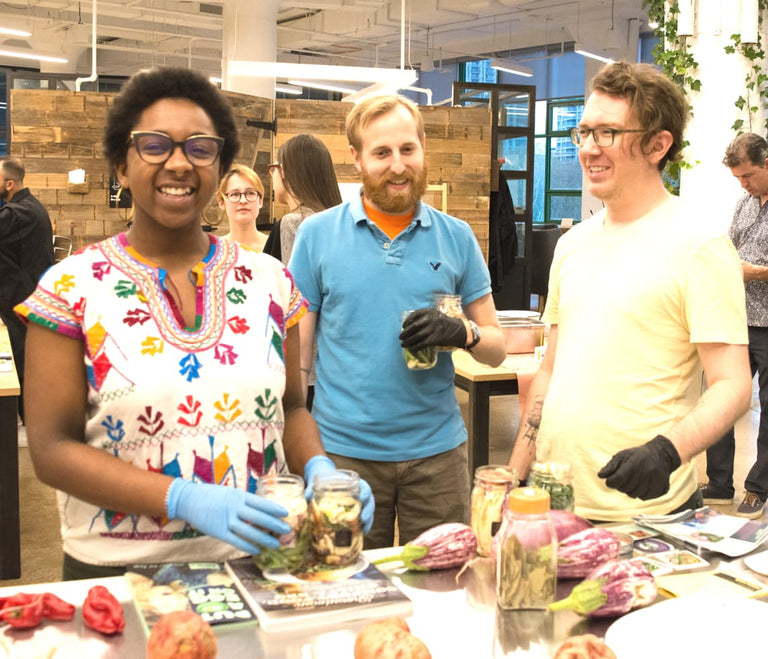5 Benefits of Farm-to-Table Eating

It’s safe to say that we love food — and if you’re reading this, chances are you do too. There’s nothing more satisfying than a delicious meal, especially when you’re sharing it with friends. It’s also extremely easy to be a foodie in NYC, as this melting pot of cultures means there are a lot of cuisines to choose from for all types of budgets. This wealth of choices also means that customers are becoming more discerning.
New customer demands have fueled restaurants and food providers to ensure that they are providing quality food prepared with quality ingredients. Farm-to-table cooking is one way for restaurants to meet this demand, with writer Kate Weiner noting that this practice is all about sustainable, local ingredients that empower the farmers growing the food and the consumers who eat it.
Due to its emphasis on fresh produce, farm-to-table dining is often associated with healthier eating. Indeed, farm-to-table is more than just a hip marketing term; it’s a mindset that asks you to reformulate your attitude towards food. Here’s how farm-to-table food can help foster a healthier lifestyle: Gives you exposure to different food
Gives you exposure to different food
One of the supposed disadvantages of farm-to-table eating is that, since it's focused on fresh produce, menus and market offerings differ with every season. This rotation is actually more beneficial, as it allows customers to switch up their diet and find new favorite dishes. It’s also worth noting that each ingredient comes with its own mix of nutrients and minerals, and so exposing yourself to as many varieties of foods as possible can help you get the most out of what you eat.
Results in a healthy, nutrient-rich diet
The rise of fast food companies has led to bland, nutrient-depleted food saturating the consumer market (literally). Researchers from Maryville University discovered that half of the population is expected to suffer from at least one form of chronic illness by 2025. A lot of these illnesses can be countered with healthier eating habits, with farm-to-table ingredients being a great way to jumpstart these habits. These locally sourced foods take away the guesswork that often comes with fast food and grocery store products.
Helps you understand where your food comes from
Fast food corporations sell convenience at the cost of consumers not knowing how their food is made. These products are either made by machines or grown in farms that use pesticides and other similar chemicals. Our farmers at Local Roots champion sustainability in many different ways, including taking care of their soil and incorporating food waste into compost and animal feed. While it’s important to know that there are actual, real people behind the food you’re eating, it’s a bonus when these same people value high-quality food, too.  Gets everyone on board
Gets everyone on board
We’ve mentioned that farm-to-table restaurants take the guesswork out of healthy eating, but at the end of the day, they make fresh food taste really flavorful. It isn’t just about bitter salads and bland desserts anymore, as chefs all over the world are reinventing what healthy eating tastes like. Eater reports that some restaurants are taking the farm-to-table concept one step further by establishing their own farms and ranches to ensure ultimate quality control and freshness.
Boosts your local economy
By buying from local farmers that don’t have to ship their produce over thousands of miles, farm-to-table restaurants (and, in turn, your patronage) helps boost the local economy. This is what we mean when we say that farm-to-table is a whole new mindset: It’s not just about healthy food, it’s also about cultivating sustainable consumption habits. Buying local allows you to appreciate what your land has to offer and what makes it different from other locales.
Penned by Leigh Thomas
Exclusively for localrootsnyc.com
Rather have a taste first?
Local Roots Experiences are fun, pop-up events where we bring the farm to you!

Become a Harvest Club Pick Up Location
Are you a NY based cafe, bar, or neighborhood business? Become a Harvest Club pick up location and have community members come to your establishment each week to pick up their Local Roots harvest.
Top






